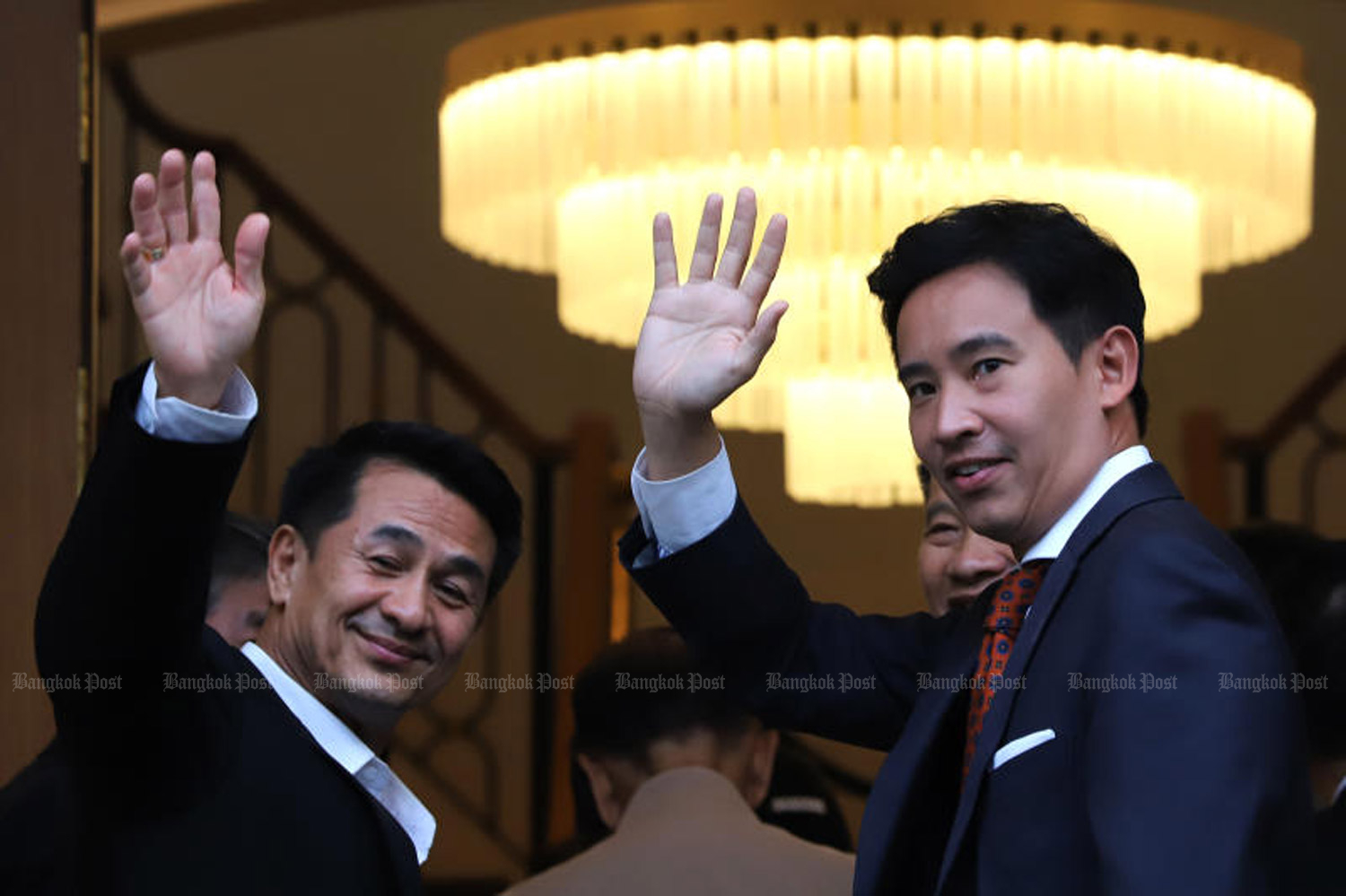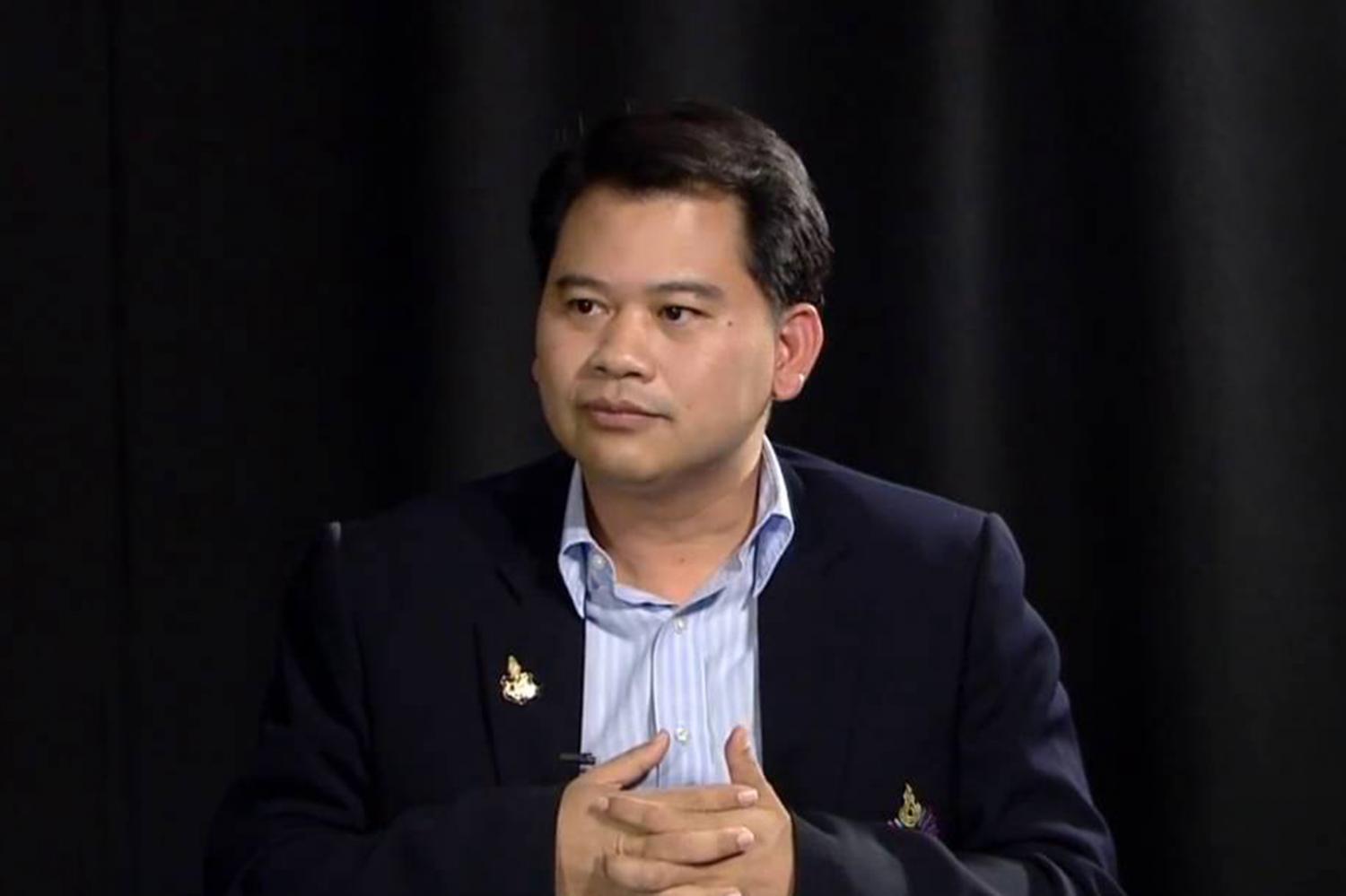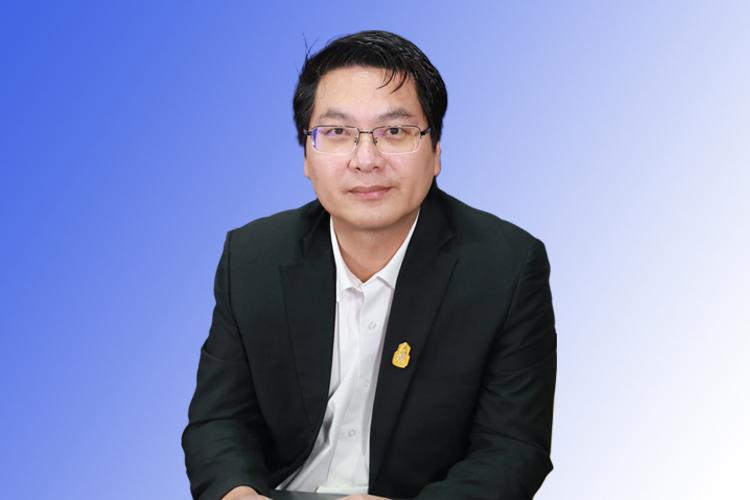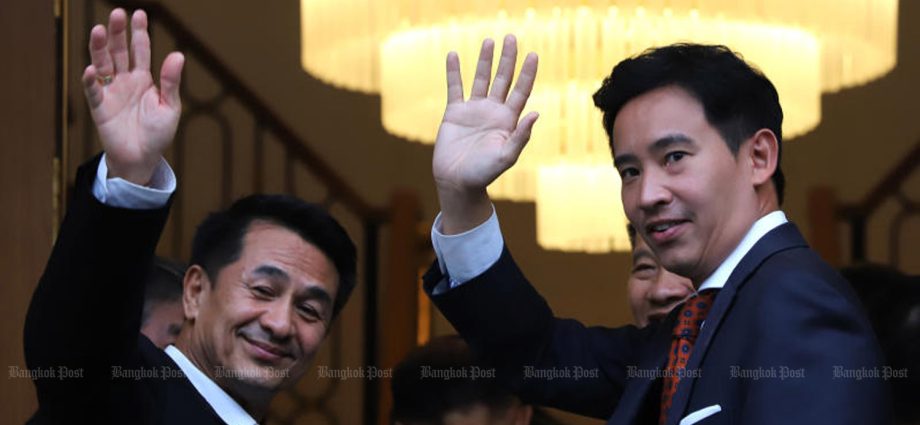
Political observers were surprised by the Move Forward Party’s victory in the May 14 election and that the Pheu Thai Party came runner-up in the race.
The Bangkok Post asked academics for their thoughts on how Thai politics will play out from now on and whether the election’s outcome spells Pheu Thai’s political downturn.
While many believe MFP’s victory will change the political landscape, it won’t be easy for the party to carry out its key policies, particularly military reform, as it will face resistance from the military and civil service establishments.
The MFP-led coalition now has a combined 313 MPs, but it needs to secure at least 376 votes — more than half of all members of the Lower and Upper Houses, which comprise 500 MPs and 250 senators — for its leader, Pita Limcharoenrat, to become the next prime minister.
The bloc is now working on an MoU that will act as a guideline for parties in the coalition to address various national, political, economic and social crises. Details of the MoU will be revealed today.
Winds of change
Yutthaporn Issarachai, a political science lecturer at Sukhothai Thammathirat Open University, said Thailand is undergoing a demographic shift, with more people who were born in the late 1990s and early 2000s — so-called Generation Z — assuming an active role in society and politics.
For many of these young voters — many were children or teenagers around the early 2000s — the first impression of Thai politics was one of chaos, with political tension reaching its peak around 2005, with demonstrations against the Thaksin Shinawatra administration, led by the People’s Alliance for Democracy, or the yellow shirts.
“At the time, they couldn’t go to school because the roads were blocked by protesters,” he said.
Furthermore, members of this generation went through a series of “disruptions” in rapid succession, including the Covid-19 pandemic.
Not only did it bring about a massive economic downturn across the globe, it also spurred the overnight adoption of various technologies and innovations which have significantly altered the way people go about their day — including the way they consume information.
“In light of these changes, no one is buying the idea of conventional politics any more,” he said.
“Everyone is looking for a new way of doing politics.
“They want changes in the way the state and the civil service is structured. Most importantly, voters are pushing for a shift from representative politics to participatory politics,” Mr Yutthaporn said.
“If Pheu Thai fails to adapt, it will start to decline [in popularity], just like the Democrats.”
He added that the election’s outcome has exposed Pheu Thai’s weaknesses.
Not only did Pheu Thai fail to grasp that the election took place amid deep political and ideological polarisation, but the party was also non-committal with its political allies before the election, he said.
MFP leader, Pita Limjaroenrat, stood out as he fared well in debates, while Pheu Thai’s prime ministerial candidates, Paetongtarn Shinawatra and Srettha Thavisin, rarely appeared in those forums, Mr Yutthaporn said.
Moreover, the MFP dared to raise issues which other parties had avoided, such as reform to the armed forces and replacing military conscription with voluntary recruitment, while Pheu Thai felt the need to maintain ties with many sides.
”With such flexibility, the MFP has an edge over Pheu Thai,” he said.

Yuttaporn: Focus now on what Gen Z wants
Hurdles ahead
However, there are challenges waiting for the MFP if it becomes the new government, he said.
”One major hurdle is the bureaucracy which runs the country,” he said.
”The other is that the MFP has to live up to the high expectations of its supporters when it comes to sensitive issues such as Section 112 [the lese majeste law] and military reforms. This will not be easy.”
He also noted MFP’s approach to politics may also be a problem and could thwart its bid to form a government.
“Politics is about making friends and allies, not enemies,” he said.
Wanwichit Boonprong, a political science lecturer at Rangsit University, said Thai politics has become a contest between liberals and conservatives, so people will have a chance to learn about new kinds of ideologies.
Conventional politics and practices will not disappear overnight, but the MFP offers a refreshing change and Thais are eager to embrace it, he said.
“MFP is a breath of fresh air and Thais are ready to take it. The party learned from the strengths of other parties and turned them into its own.
”MFP learned about Pheu Thai’s success in policymaking when the party toured the provinces to gather input from voters, which it turned into policies,” Mr Wanwichit said.
The MFP made the most use of social media platforms, such as Twitter and TikTok, to reach out to more people and drum up support, in addition to conventional election campaigning, he said.
The party also included candidates from various backgrounds on its list, with leaders of labour movements placed higher on the list to show that these candidates can become policymakers, Mr Wanwichit said.
As for Pheu Thai, Mr Wanwichit said its candidates were too complacent and too reliant on the party’s popularity, and they did not work hard enough to woo voters, which resulted in a humiliating defeat in Bangkok.
MFP swept 32 out of 33 constituency seats in the capital, with Pheu Thai clinching only one seat.
Mr Wanwichit had a similar view that the MFP’s policies that could trigger resistance, particularly military reform and the disbandment of the Southern Border Provinces Administration Centre.
The party should focus its attention on something easier, such as the bill to liberalise the liquor industry, also known as the “progressive liquor bill”, the marriage equality bill and anti-discrimination bill for the LGBTQ community, he said.

Wanwichit: MFP is a ‘breath of fresh air’
Virot Ali, a political scientist at Thammasat University, said if the MFP becomes the government, it will face pressure from its own supporters, many of whom want the party to initiate change as quickly as possible.
However, the party must secure enough support for Mr Pita to become prime minister first, he said.
Another problem involves allegations made against Mr Pita over his ownership of shares in iTV, an independent broadcaster founded in the 1990s, which could thwart his bid for the premiership.
Political activist Ruangkrai Leekitwattana asked the Election Commission to investigate Mr Pita, claiming the MFP leader owns 42,000 shares in iTV.
A candidate is constitutionally barred from contesting in an election if he or she owns stakes in a media company.
Mr Virot said that future elections will see intense rivalry between the MFP and Pheu Thai as Pheu Thai cannot afford to be reduced to a medium-sized party.
”Pheu Thai is now expected to turn over a new leaf and think of ways to win back the people’s hearts. It may revamp the party’s structure so it can compete on an equal footing with the MFP and present more interesting party policies,” Mr Virot said.
”The MFP should also learn to compromise as it tries to push for its policies. But pushing for its policies will not be as easy as they think,” he said.

Virot: iTV shares could thwart Mr Pita’s PM bid
Adapting to change
Stithorn Thananithichot, director of the Office of Innovation for Democracy at the King Prajadhipok’s Institute, said the outcome of the election showed voters favoured liberal-minded politicians, such as the MFP, as they want a solution to problems that remain unsolved.
“A new kind of politics is expected to take shape if the MFP becomes the new government,” he said.
“Money politics, cash handouts as well as the patronage system will be replaced by a new focus on political ideologies,” he said.
He added that after MFP’s victory in the election, Pheu Thai must adapt if it wants to survive in politics.
”If Pheu Thai wants to join the MFP-led coalition, it must keep pace with the MFP.
”But if it wants to form its own coalition, Pheu Thai can stick to its own ways, including populist policies. This will depend on the clout of local politicians and the effective use of canvassers in campaigning,” Mr Stithorn said.
When asked to outline the reasons behind the MFP’s victory in the election, he said there were several factors, such as voters’ desire for change and the party’s clear stance against the so-called “uncle parties”, or military-linked parties.
Mr Stithorn also pointed out that the MFP still has a long way to go before it can push for major changes in politics.
”Change will not be immediate. But the party may start by seeking to amend the constitution.
”If it becomes the government, it can propose a referendum on rewriting the constitution. But it will be up to the people to decide whether they will agree with the proposed charter rewrite.
”But the process will take a long time. The MFP-led government may complete its four-year term before it can see the charter rewrite bid through. Big changes won’t come fast,” he said.

Stithorn: Potential for new focus on political ideologies

